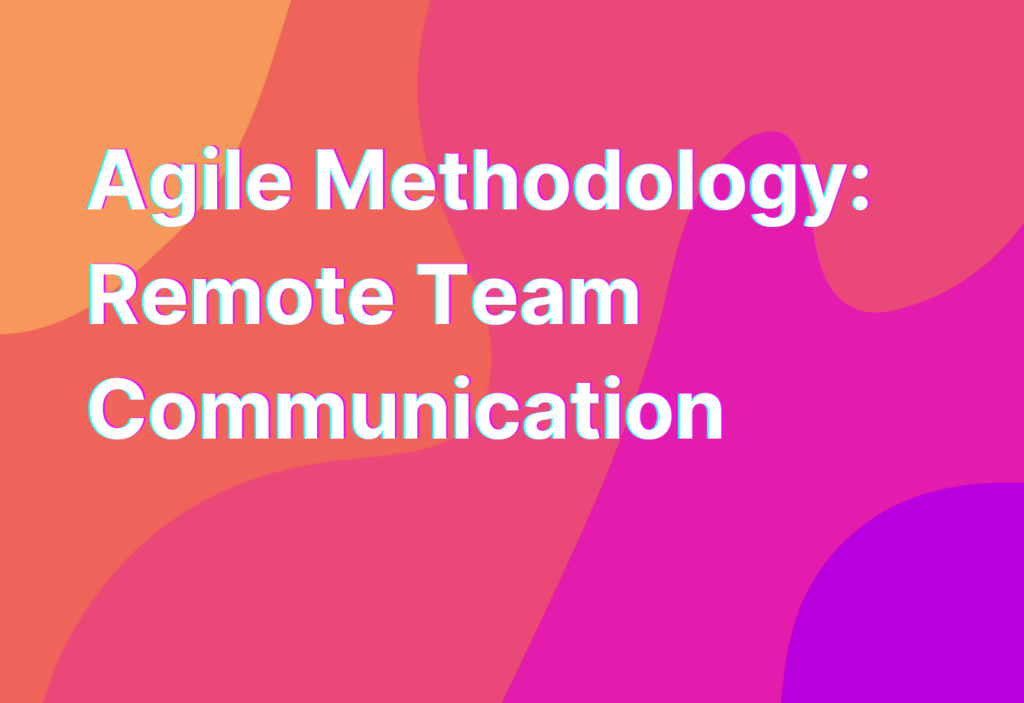Agile Methodology: Remote Team Communication
Hey there, fellow remote workers! Today, we’re diving into the world of Agile methodology and how it can improve communication within remote teams. As someone who has been working remotely for the past 10 years, I can tell you that effective communication is the key to success in any remote team. So, let’s explore how Agile methodology can help us achieve just that!
What is Agile Methodology?
Before we jump into the specifics of Agile methodology, let’s take a moment to understand what it actually is. Agile methodology is an iterative approach to project management and software development that focuses on collaboration, flexibility, and continuous improvement. It emphasizes adaptive planning, evolutionary development, and early delivery.
Agile methodology is based on the principles outlined in the Agile Manifesto, which values individuals and interactions over processes and tools, working software over comprehensive documentation, customer collaboration over contract negotiation, and responding to change over following a plan.
How Agile Methodology Enhances Remote Team Communication
Now that we have a basic understanding of Agile methodology, let’s explore how it can enhance communication within remote teams. Here are some key ways Agile methodology can help:
- Regular Stand-up Meetings: Agile teams typically have daily stand-up meetings where team members share updates on their progress, discuss any challenges they’re facing, and align their efforts. These meetings provide an opportunity for remote team members to connect, collaborate, and stay in sync.
- Clear Communication Channels: Agile methodology encourages the use of clear and transparent communication channels. Remote teams can leverage tools like Slack, Microsoft Teams, or Zoom to facilitate real-time communication, file sharing, and collaboration.
- Collaborative Project Management: Agile teams often use project management tools like Trello, Jira, or Asana to track tasks, assign responsibilities, and monitor progress. These tools enable remote team members to have a clear overview of the project, understand their role, and collaborate effectively.
- Regular Retrospectives: Agile methodology emphasizes continuous improvement. Remote teams can conduct regular retrospectives to reflect on their work, identify areas for improvement, and implement changes. This fosters a culture of open communication and encourages team members to share their thoughts and ideas.
- Adaptability and Flexibility: Agile methodology embraces change and encourages teams to be adaptable and flexible. This is particularly beneficial for remote teams as they often face unique challenges and need to adjust their communication strategies accordingly.
By implementing Agile methodology, remote teams can overcome communication barriers, foster collaboration, and improve overall team performance. It’s all about finding the right balance between structure and flexibility!
Wrapping Up
So there you have it, folks! Agile methodology is a powerful tool that can enhance communication within remote teams. By leveraging regular stand-up meetings, clear communication channels, collaborative project management, regular retrospectives, and adaptability, remote teams can thrive in their work.
If you want to dive deeper into remote team communication strategies, I highly recommend checking out this Bandwidth article on Remote Teamer. It’s packed with valuable insights and practical tips to help you improve communication within your remote team.
Remember, effective communication is the backbone of any successful remote team. So, embrace Agile methodology, stay connected, and keep those communication channels open!


